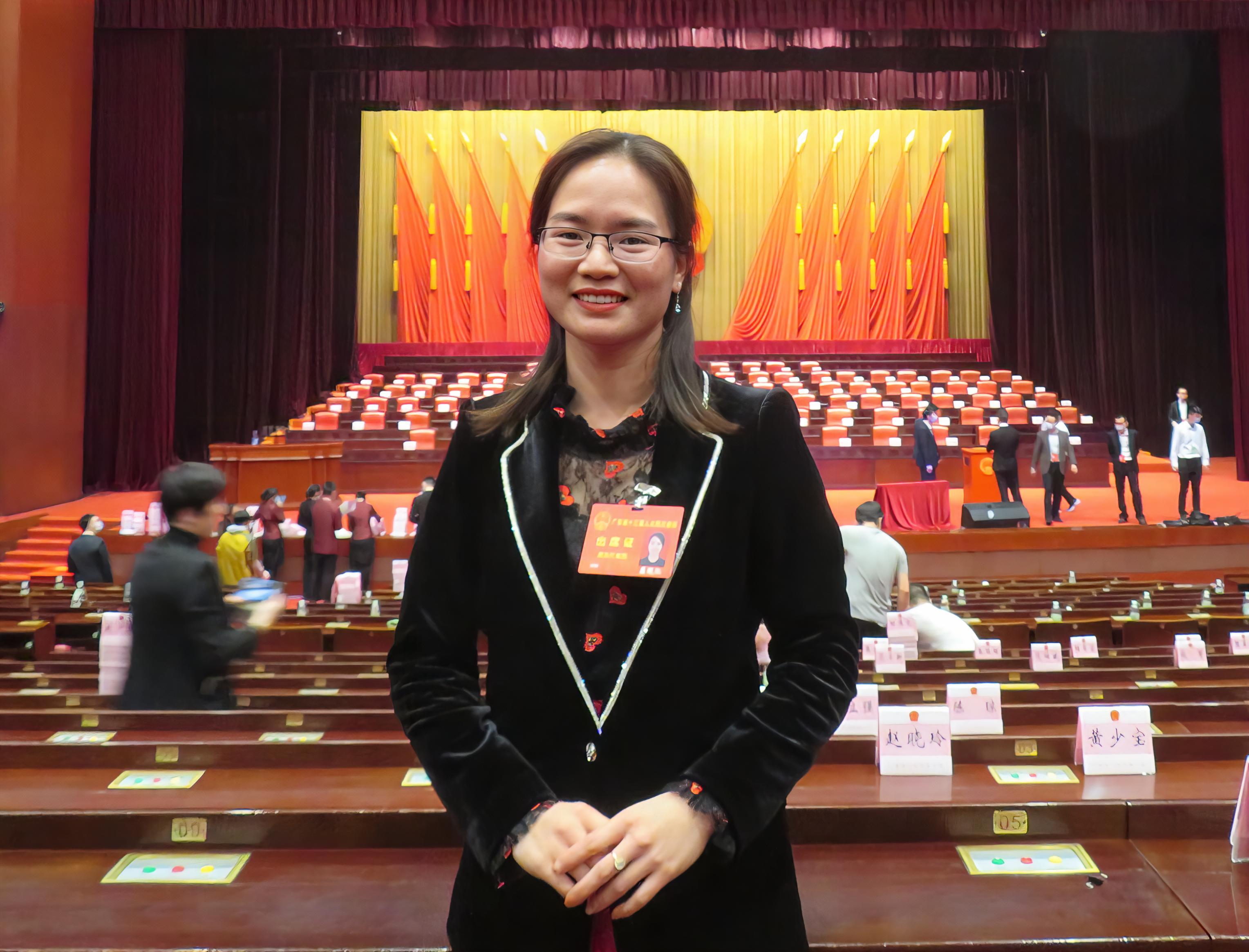During the two sessions of Guangdong Province in 2022, Gong Yanhong, a deputy to the People's Congress of Guangdong Province and a physical education teacher at the First Middle School in Gaozhou City, Guangdong Province, believes that social governance is a systematic project, of which the key to opening up the "last kilometer" of judicial services is to create a dispute resolution model with Chinese characteristics by means of the rule of law.
Behind how to achieve "one good job, one solution" is the integration of the platform, the concentration of functions, the optimization of resources, and the integration of the network, and it is necessary to continuously expand the breadth and depth of the judiciary for the people, and provide real professional judicial services to the grass-roots masses.

Gong Yanhong, deputy to the People's Congress of Guangdong Province and physical education teacher of the First Middle School of Gaozhou City, Guangdong Province. Courtesy of the correspondent
Especially during the epidemic prevention and control period, how to focus on the requirements of epidemic prevention and control, it is necessary to link up with various judicial organs, grass-roots units, and social third-party forces, take the initiative and innovate practices, and provide the people with online and offline hierarchical, multi-channel, high-efficiency, and low-cost dispute resolutions, so that more contradictions and disputes can be resolved in the bud and mediated before litigation.
Gong Yanhong introduced that taking her Maoming Gaozhou as an example, from 2019, combined with the fact that it is located in the mountainous area of western Guangdong and has inconvenient transportation, led by the local municipal party committee, 40 judicial service centers and more than 400 village-level judicial service points have been set up in all town streets and key industries.
Give play to the functions of rule of law publicity "cure the disease before the disease", pre-litigation mediation "see the outpatient clinic", litigation services "find a specialist", and interpret the law with cases to "re-warn", open up the "last kilometer" of judicial services, and explore a new road in the co-construction, co-governance and sharing of social governance.
In recent years, she has participated in many pre-litigation mediations, and has gained an in-depth understanding of the complicated and simple diversion, pre-litigation mediation, expedited adjudication of cases, judicial confirmation and other work promoted by the Judicial Service Center for the Benefit of the People to achieve efficient dispute resolution.
In 2021, she also participated in the live broadcast activity of "One Station to Resolve Disputes" carried out by the People's Court News and Media Headquarters in the Gaozhou Court, which made her more intuitively feel the convenient experience brought by this innovative model to the masses.
Gong Yanhong learned that last year, the Guangdong court also established more than 100 online circuit courts in townships and towns in the province that did not have people's courts, and Gaozhou built 23, which effectively solved the problems of the masses in remote areas such as difficulty in fighting lawsuits, long dispute resolution cycles, and inconvenient pre-litigation mediation.
Regarding the use of the rule of law to promote grass-roots governance and the work of resolving disputes at the source of litigation, Gong Yanhong has three suggestions:
First, it is recommended to refer to the model of building a judicial service center for the benefit of the people in Gaozhou, incorporate the construction of the "last kilometer" of judicial services into the important content of comprehensively governing the province according to law, rely on grass-roots judicial linkage to resolve disputes and online circuit courts, further improve the level of grass-roots governance, and promote the modernization of urban social governance;
The second is to develop simpler and more convenient smart litigation service products, further simplify the online litigation service process on the existing basis, so that the grass-roots people, especially in remote areas, can understand, learn quickly, and use it well;
The third is to focus on more specific issues in the publicity of the Civil Code, combined with the "interpretation of the law by case" to answer questions and doubts, and promote the people to know the law, understand the law, and abide by the law.